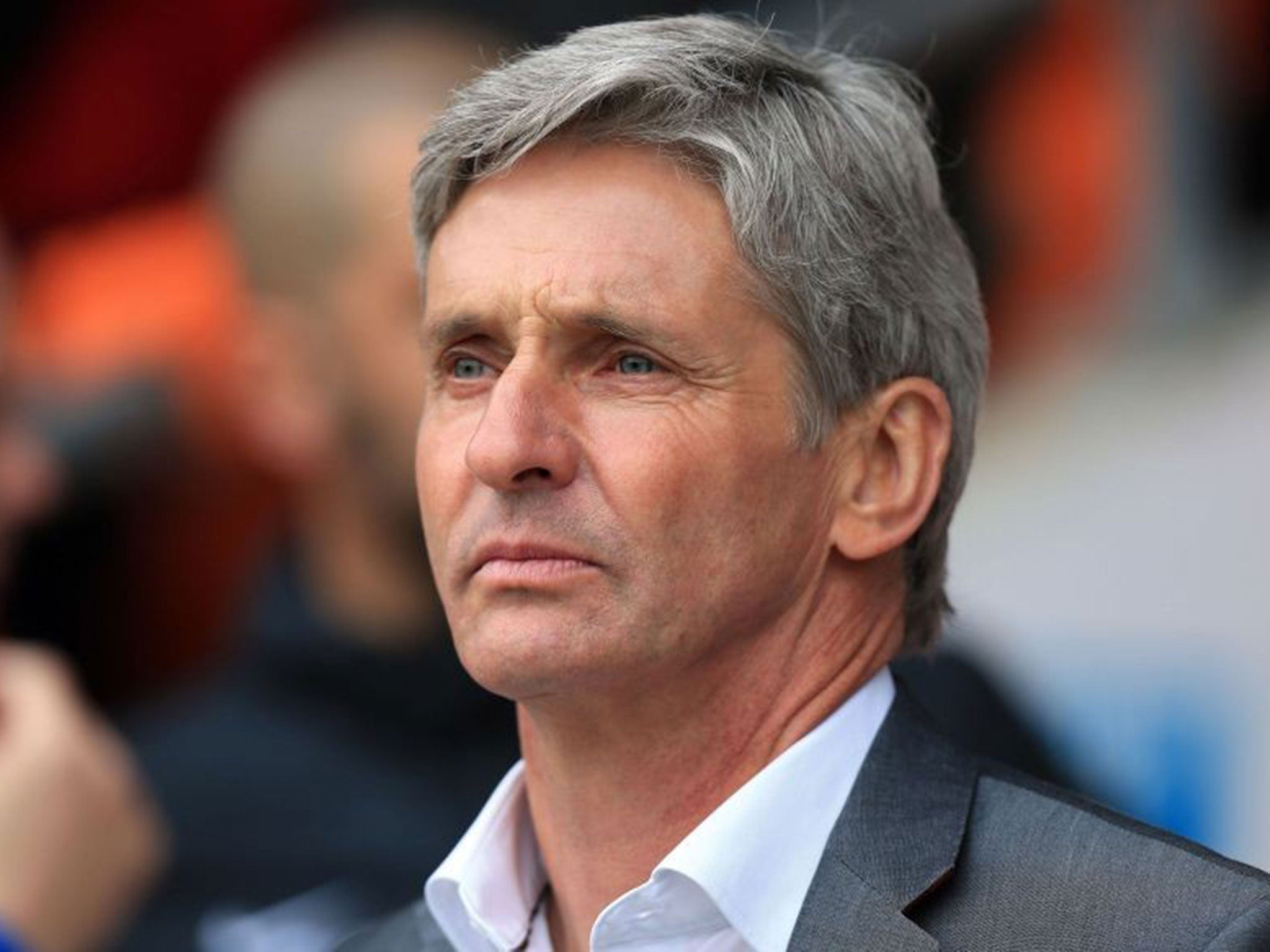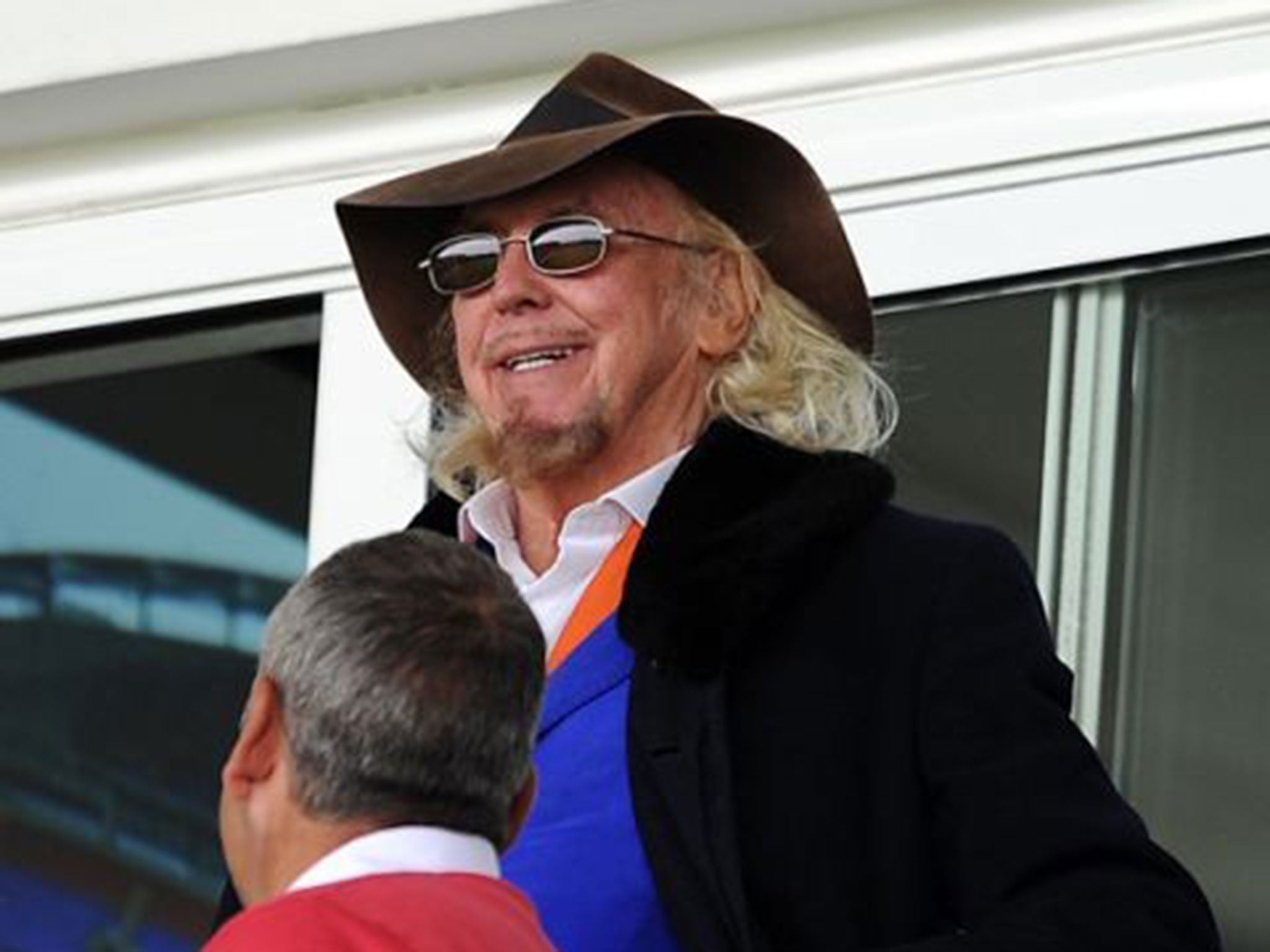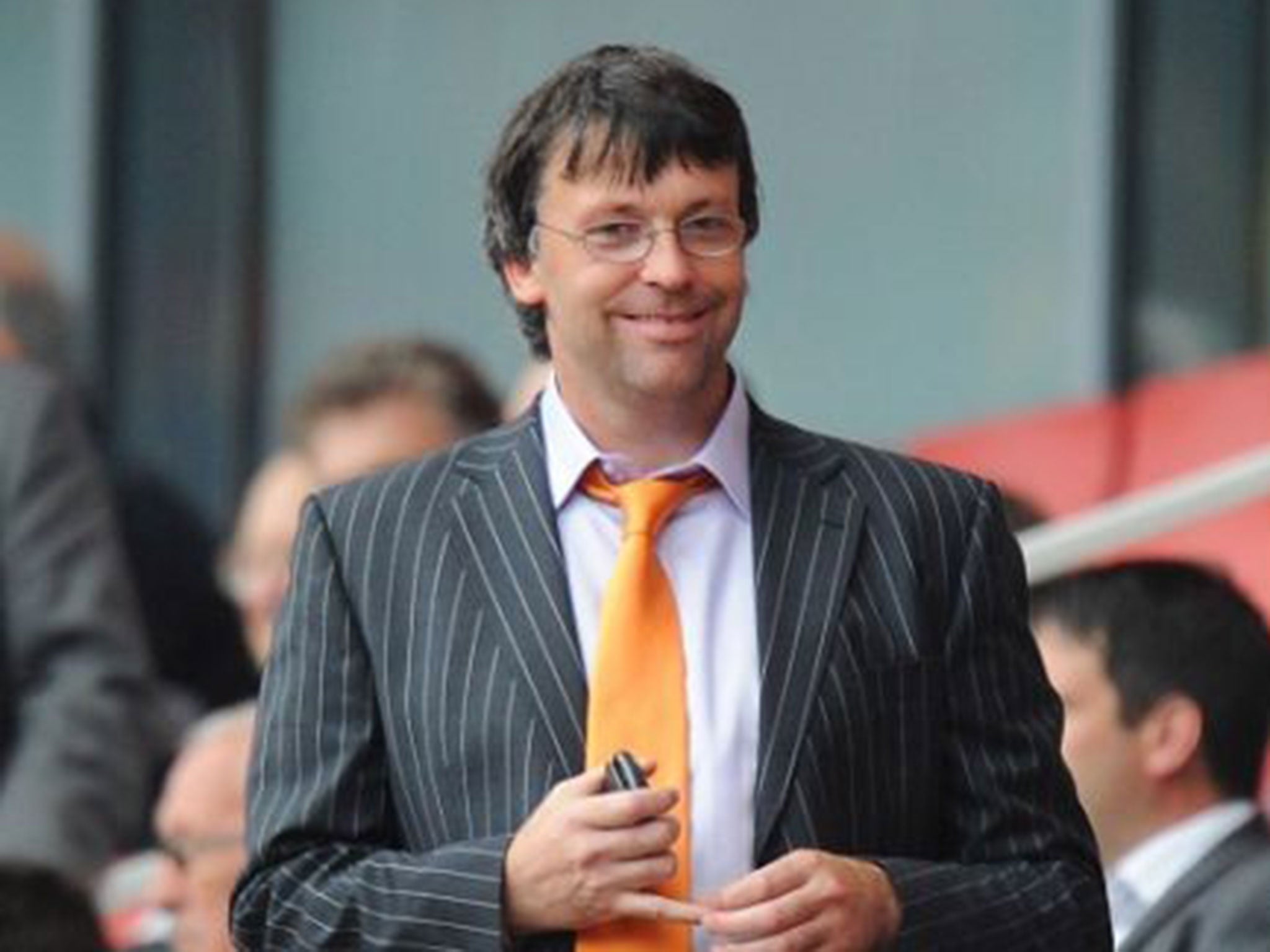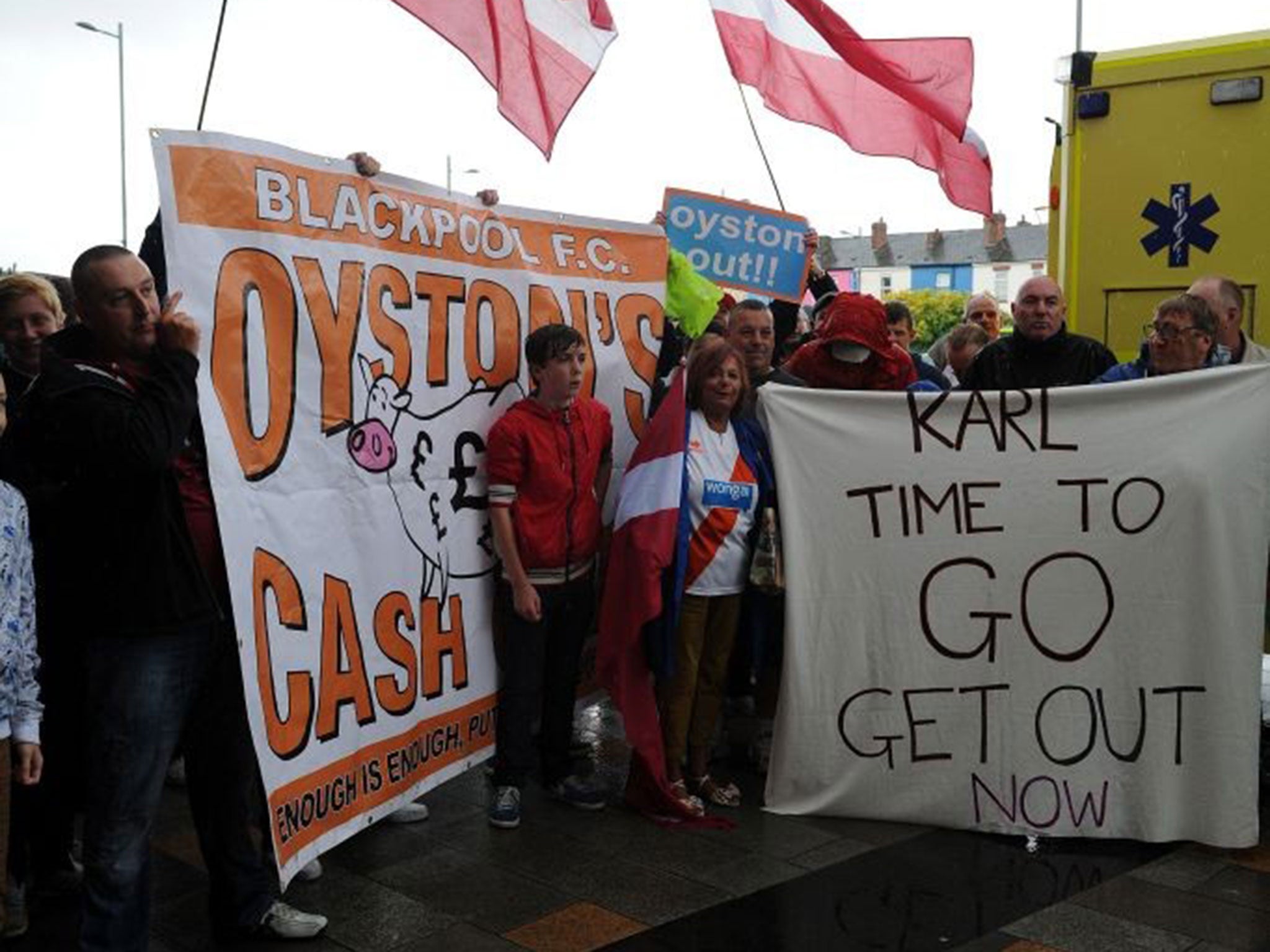Your support helps us to tell the story
From reproductive rights to climate change to Big Tech, The Independent is on the ground when the story is developing. Whether it's investigating the financials of Elon Musk's pro-Trump PAC or producing our latest documentary, 'The A Word', which shines a light on the American women fighting for reproductive rights, we know how important it is to parse out the facts from the messaging.
At such a critical moment in US history, we need reporters on the ground. Your donation allows us to keep sending journalists to speak to both sides of the story.
The Independent is trusted by Americans across the entire political spectrum. And unlike many other quality news outlets, we choose not to lock Americans out of our reporting and analysis with paywalls. We believe quality journalism should be available to everyone, paid for by those who can afford it.
Your support makes all the difference.Sir Alex Ferguson would have recognised the scenario. His first job in management was at East Stirling, and when he arrived at Firs Park it was to be told he had a playing squad of eight.
"You do realise, Mr Chairman, that you need 11 to play a football match," he said, "and it's advisable to have a goalkeeper."
When Jose Riga took over as Blackpool manager last month, he had eight players and no goalkeeper, although things have moved on. There is now enough for a football team at Bloomfield Road, although he is still looking for someone to put between the sticks at what Germany's biggest-selling newspaper, Bild, called: "Europe's most chaotic club".
Yesterday Blackpool, a team which four seasons ago beat Liverpool home and away, completed their preparations for the coming Championship campaign with a friendly against Burnley. Aside from a match against Penrith in which Blackpool fielded five trialists, yesterday's game represented their entire pre-season – one that has been dominated by a bitter feud between the club's president and minority shareholder, the Latvian banker Valeri Belokon, and the owners, the Oyston family.
Belokon, who has accused the Oystons of taking £24 million out of the club without his consent, is backed by the Blackpool Supporters Trust. The club's chairman, Karl Oyston, responded with a long letter published on the Blackpool website. In it he accused Belokon of wanting a similar sum for his 20 per cent stake in the club.

The gist of Karl's argument was that the Oystons had underwritten Blackpool for 27 sometimes very thin years, including three in which his father, the socialist entrepreneur Owen Oyston, now 80, was in prison for rape. They were entitled to some payback – and the money had gone to their companies, not to them.
In the midst of all this, preparations for the most volatile division in European football spluttered along. A game against Alfreton Town was called off. Blackpool withdrew from a tournament in La Manga to allow Riga more time in which to sign players. He added three more; two were from Barnsley, who were relegated from the Championship last season. Another new arrival was Peter Clarke, a 32-year-old central defender who had been released by Huddersfield but did have the advantage of having played for Blackpool before – albeit when they were in the third tier of English football.
In one sense Blackpool are a well-run football club. The Championship operates on economic lines that would shame a banana republic. The seven most debt-ridden clubs in 2013 – Bolton, Leicester City, Brighton, Ipswich, Middlesbrough, Hull and Cardiff City – owed a combined total of £670m. Blackpool are debt-free, and were one of only four Championship clubs to have made a profit last year. Their accounts for 2013 declared a cash balance of more than £4m.
It is, however, where those profits have gone that have triggered accusations that the Oystons have been relentlessly using Blackpool as a cash cow even when the milk has started to run dangerously dry. Most of the profits made by Blackpool have been distributed perfectly legally into other companies controlled by the Oystons, whose fortunes were transformed the moment Ian Holloway took Blackpool into the Premier League in 2010.
In that year the club's holding company, Segesta Limited, had a net worth of minus £6.39m. It was given an unsecured, interest-free loan of £11.5m by the club, 34 times their turnover. Segesta's debt to Blackpool now stands at £23.71m.
A further £11m was paid to Zabaxe Limited, a company wholly owned by Owen Oyston and his wife, Vicki. In 2010, the year Blackpool won promotion to the Premier League, Zabaxe's cash balances were zero. They now stand at £8.699m.

The £11m represented more than was paid to Blackpool's entire first-team squad during their season in the Premier League. Holloway's salary was £400,000.
The Oystons argued that had Zabaxe not received the money from Blackpool, the club would have had to pay a significant sum in corporation tax, and that they would be prepared to lend the money back without interest to rebuild the training ground – although they have not yet done so.
However, Chris Walker, who has investigated Blackpool's accounts extensively for the fans' website measuredprogress.co.uk, argued that the bill to the Oystons would have been the same wherever the money went.
Zabaxe has used payments from Blackpool to finance some of Owen Oyston's smaller operations. One of the most interesting payments was to Lamara Roma Limited, set up in September 2011. The sole shareholder was Lamara Hill, the then 18-year-old daughter of Steve Hill, whose company Northern Security supplies match-day staff to Bloomfield Road. The company was dissolved in January last year.
This is a significant season for Blackpool, and not just because they are threatening to begin it without a goalkeeper. It is the final one in which they will benefit from the Premier League's parachute payments for relegated clubs, which last for four seasons.
The Oystons have always set great store by this influx of money. In the directors' report they stated: "Remaining in the Championship is not considered a considerable risk to the company as turnover will still be assisted by guaranteed parachute payments from the Premier League."
Blackpool survived last season by two points and responded by getting rid of almost the entire first-team squad. Only Riga's appointment as manager inspired confidence. Last season the 57-year-old, one-time technical director of Milan and manager of Standard Liège, steered Charlton to safety. This latest challenge is likely to be more difficult.

"It is not an easy challenge," he said when arriving at the club. "But with the support of the chairman and, certainly, the support of the fans, who really must be the 12th man, I am sure we can succeed."
The fans are not so sure. "What we are going through has been described as engineered stagnation," said Walker. "It seems that the Oystons' motivation is, 'How little [expense] can we get away with?' Last season Blackpool survived because they won five of their first six fixtures. Nobody expects a repetition of that.
"There are some fans who are suspicious of Belokon and would support the Oystons on the grounds that it is better the devil you know. However, what you can say with some certainty is that Blackpool's fortunes began turning around the moment Belokon invested. In the 2006-07 season we were in the third tier. His money financed the rebuilding of the squad, the fitting out of two stands and the signing of Charlie Adam."
Meanwhile the season grows ever nearer. In his final press conference at Manchester United, Ferguson recalled his first days as manager at East Stirling.
"That is your education," he reflected. "Other managers should start in that kind of way, but I don't suppose it's that kind of way now."
Jose Riga might just beg to differ.
- This article was changed. An earlier version suggested that Owen Oyston owned Lancashire Life. It is in fact Archant.

Join our commenting forum
Join thought-provoking conversations, follow other Independent readers and see their replies
Comments